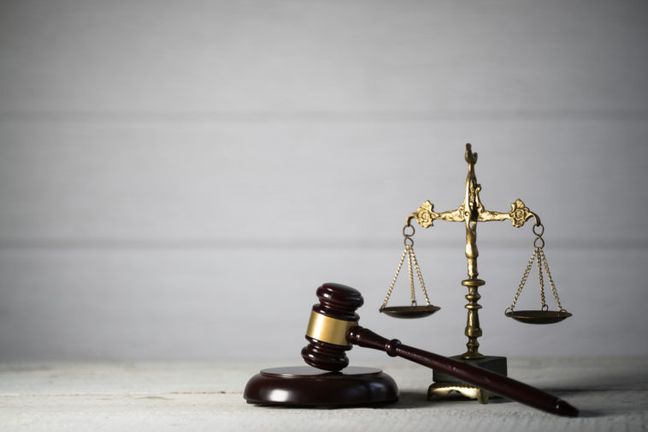To bolster the already existing State and Federal laws prohibiting workplace sexual harassment and discrimination, the Nevada Gaming Commission (the “Commission”) has recently adopted its own policies tied to the gaming licenses it issues throughout the state. Publications have noted that Nevada has owned the unwanted title of leader in sexual harassment complaints per capita in the United States. Whether that is the product of a well-informed, educated and vocal workforce, or instead reflects the need for stronger policies against sexual harassment, is up for debate. However, the Commission is not standing by idly and has unanimously amended state regulations prohibiting harassment and discrimination based on certain protected classifications. These include race, religion, sex, sexual orientation, gender identity, age, disability and national origin. By March of 2020, those licensees that fall within the coverage of the newly enacted policies must have compliance plans in place.
What Has Been Changed?
The amendments to Regulation 5 affect gaming license holders with 15 or more employees, mandating they have and implement policies and procedures that prohibit discrimination and harassment based on an employee’s status as a protected class member. There is some concern that these amendments mirror the laws that are already in place and that most, if not all, license holders with 15 or more employees already have in place policies and procedures to protect their employees. However, supporters disagree and believe this is a game changer in that non-compliance with these regulations has the potential to impact coveted and well-protected gaming licenses.
Under existing state and federal laws, gaming entities that employee individuals face the same susceptibility to claims and lawsuits as any other employer in Nevada, but there is an ongoing concern that often these claims and lawsuits are settled, such that the underlying facts and identities of those responsible never see the light of day. Now, the Gaming Control Board will have a window into the practices of licensees and, specifically, as it relates to the active protection of employees from harassment and discrimination.
Notably, the new regulations do not call for the evaluation of individual claims brought by casino employees, but instead allow the gaming regulators to ensure licensees are appropriately implementing their policies across the board. The policies they will be checking are not limited to those applicable to disparate treatment or harassment by co-workers and supervisors, but also to such treatment by non-employees, including customers and vendors. Where alcohol-fueled customers are the norm in casinos, protection of workers is vital, but also presents unique challenges to casino owners and management.
Amendment Procedures
The newly enacted amendments come after an original proposal regarding the prevention and reporting of sexual harassment never reached a final vote by the Commission in 2018. Like last year’s proposal, the 2019 version was drafted by the Nevada Gaming Control Board, which makes recommendations to the Commission based on investigative findings. This year, the 2019 proposal found its way to a vote of the five commissioners, who voted unanimously to enact the amendments as drafted. A major distinction between the two proposals is that the 2018 version would have required affirmative conduct on the part of casinos to regularly report their plans, policies, procedures and training relating to sexual harassment. Perhaps a more significant distinction between the 2018 and 2019 proposals was the 2018 proposal contemplated license holders reporting on annual basis the number of valid claims they received and the disposition of those claims. The now-adopted 2019 proposal does not require such reporting. Instead, the amendments mandate the inception and application of policies and procedures, and casinos are subject to auditing by the Gaming Control Board to ensure compliance.
Described as a “reasonable response to the issue” by Professor Anthony Cabot of UNLV’s William S. Boyd School of Law and as reported by Casino.org, Cabot went on to point out the regulations are uniquely suited to address accusations of harassment or discrimination at the hands of senior management or owners. Those “[c]laims could either be ignored or handled outside the authority of HR directors – or civilly, by attorneys, without ramifications to the perpetrator’s job or license status.” Now, the Gaming Control Board can serve as a watchdog to ensure all are held accountable.
Viewed largely as a step toward increased vigilance and attention to these issues, it remains to be seen whether the Commission’s entry into the everchanging world of employment law will have an impact. However, as public awareness of workplace discrimination and harassment remains on the rise, Nevada’s gaming regulators add a layer of protection for casino workers.
Takeaway
Workplace discrimination lawsuits will have a new source of information for discovery on how the employer handles these types of claims. Employers and their insurers will have to be careful to ensure that liability exposure does not increase as a result of proof of failures to implement workplace harassment protections or proof of unequal implementation of harassment protections being turned over in discovery by the Commission.

 Author: Harry Harrison
Author: Harry Harrison
 Cannabis Workers Allege Quota to Trim 4 Pounds a Day Violates the California Labor Code
Cannabis Workers Allege Quota to Trim 4 Pounds a Day Violates the California Labor Code
 The Ninth Circuit Reminds Us: Every Word Matters
The Ninth Circuit Reminds Us: Every Word Matters
 NO WAY, PRO SE! The Consequences of Abusing the Judicial System as a Pro Se Litigant in Colorado
NO WAY, PRO SE! The Consequences of Abusing the Judicial System as a Pro Se Litigant in Colorado
 Victim of Financial Mismanagement or Unlawful Retaliation? New Jersey City University Program Founder Claims School Retaliated After Reporting Alleged Sexual Harassment
Victim of Financial Mismanagement or Unlawful Retaliation? New Jersey City University Program Founder Claims School Retaliated After Reporting Alleged Sexual Harassment
 “Real Housewives” Gets a Reality Check
“Real Housewives” Gets a Reality Check
 Missing a Chapter: Insufficiency of Expert Deposition Testimony in Medical Malpractice Litigation
Missing a Chapter: Insufficiency of Expert Deposition Testimony in Medical Malpractice Litigation
 Crash Course: Why Summary Judgment Misses the Mark in Illinois Multi-Cause Limousine Crash Collision
Crash Course: Why Summary Judgment Misses the Mark in Illinois Multi-Cause Limousine Crash Collision
 Bitter Truths: Lead, Cadmium, and Defective Pleadings in California Chocolate Class Action
Bitter Truths: Lead, Cadmium, and Defective Pleadings in California Chocolate Class Action
 The Law of Unintended Consequences: Including Insurance Brokers in Litigation Strategy Communication May Waive the Attorney-Client Privilege
The Law of Unintended Consequences: Including Insurance Brokers in Litigation Strategy Communication May Waive the Attorney-Client Privilege
 The End of Vaccination Requirements by The Federal Government and Beyond: What Does It Mean for Employers?
The End of Vaccination Requirements by The Federal Government and Beyond: What Does It Mean for Employers?
 The Tragic and Curious Case of A Train vs. Pedestrian Collision Gone Nuclear
The Tragic and Curious Case of A Train vs. Pedestrian Collision Gone Nuclear
 California Deemed It Was Time: Bereavement Leave for Employees
California Deemed It Was Time: Bereavement Leave for Employees
 How Broad is Too Broad When Interpreting Insurance Policy Provisions? NJ Supreme Court Weighs In
How Broad is Too Broad When Interpreting Insurance Policy Provisions? NJ Supreme Court Weighs In
 “Use It or Lose It” No More – Colorado Supreme Court Weighs in on Employee’s Rights to Compensation for Accrued Vacation Pay
“Use It or Lose It” No More – Colorado Supreme Court Weighs in on Employee’s Rights to Compensation for Accrued Vacation Pay
 The Constitutionality of Caps – The High Court in Tennessee Upholds Statutory Limits on Noneconomic Damages
The Constitutionality of Caps – The High Court in Tennessee Upholds Statutory Limits on Noneconomic Damages
 Impacted Florida Businesses – Are they Covered for COVID-19-Related Business Losses?
Impacted Florida Businesses – Are they Covered for COVID-19-Related Business Losses?
 Pre-Employment Drug Testing: What Nevada Employers and EPL Insurers Need to Know
Pre-Employment Drug Testing: What Nevada Employers and EPL Insurers Need to Know